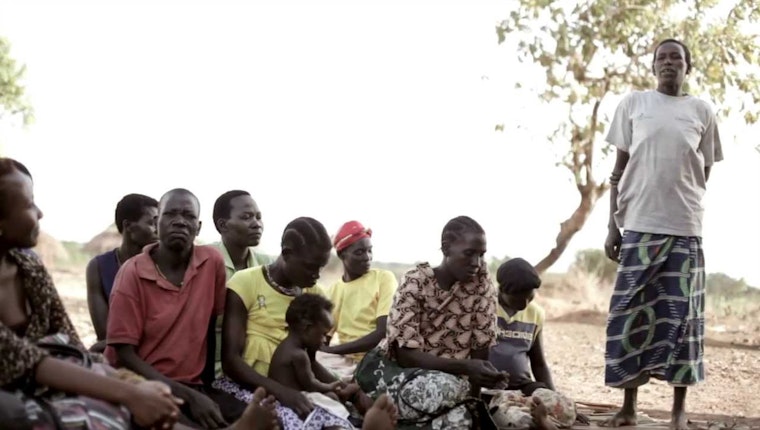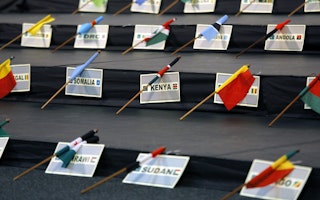Taking Radio Out of the Studio
By Emma Day

Northern Uganda is one of the most challenging places to reach local populations—especially women—through traditional media. After two decades of war, the region is under-resourced with poor infrastructure. Families struggle to access water, food, transport, shelter, and, of course, TV and newspapers. Most people rely on radio as the main source of news. However, in a country where 80 percent of radio stations are owned by ruling party politicians or businessmen affiliated to the ruling party, it is hard to provide impartial information to the citizens.
During the war, most of the population of Northern Uganda was displaced due to violence or moved to settlement camps created by the government to protect them from the rebel Lord’s Resistance Army rebels. As men were conscripted to fight the LRA, a large number of households became female-headed. Women became the breadwinners, and family providers. When the war ended, families began to return to their land and to rebuild their lives, but with the fabric of their society having been destroyed, things could not go back to the way they were before. Today, large numbers of men have turned to alcohol and have become violent towards their wives and children, partly due to the trauma of their experiences in the war, and partly because they feel disempowered by their wives who seem not to need them anymore, and by the lack of employment options.
However, the emergence of a vibrant local media in the form of community radio broadcasting in the regional Luo language, has promoted public debates on human rights, transparency and accountability in governance, and domestic relations. Radio announcements have been instrumental in reuniting trafficked women and children with their families.
Panos Eastern Africa has come up with creative solutions to bring radio to the more remote communities that have for years been cut off from the rest of the country and isolated from most forms of media. Panos works with rural radio stations to reach the unheard and remote voices in Northern Uganda. Through the project, Panos trained local journalists, provided them with a motorcycle to travel to the villages, and audio recorders. For the first time radio got out of the studio. Before, women were left out of the debates, but now they have found their voice and radio has finally broken out of the studio into the rural areas. The audiences are now demanding that these programs continue because they are such a useful resource.
Community members debate pertinent issues ranging from land use to domestic violence, defilement, and access to water. They encourage women to participate in the debates fully, and to raise issues that are of concern to them. The debates are recorded, and then brought back to the studio to be broadcast on the radio. Alongside the broadcasts, Panos invites local leaders to respond to questions live on air and to participate in a studio debate with call-ins from the public.
Panos Eastern Africa is a partner of the Open Society Initiative for Eastern Africa.
Emma Day is a freelance human rights lawyer.


